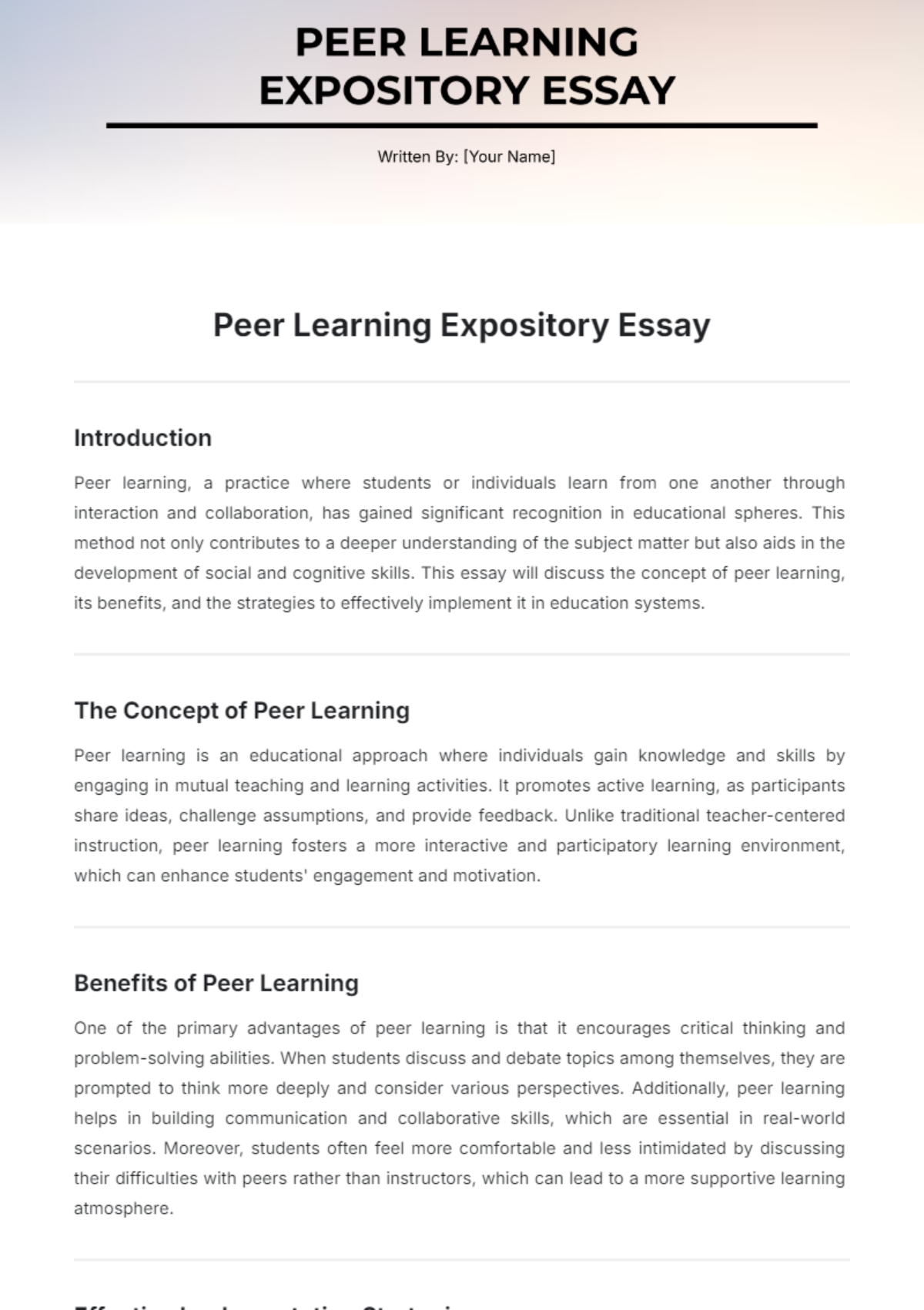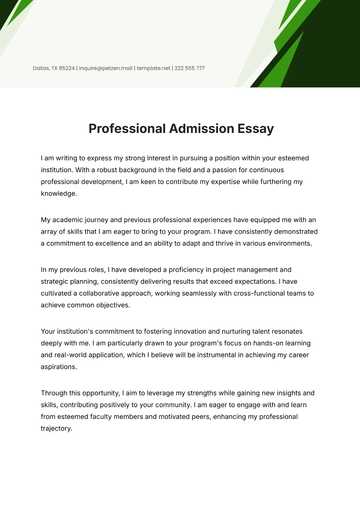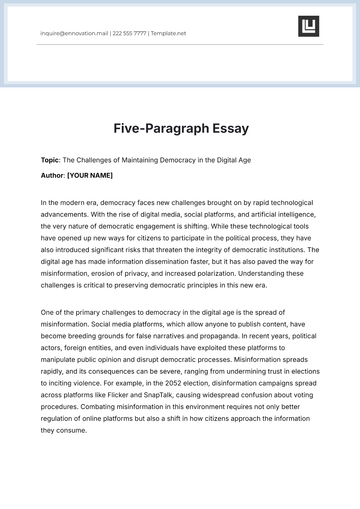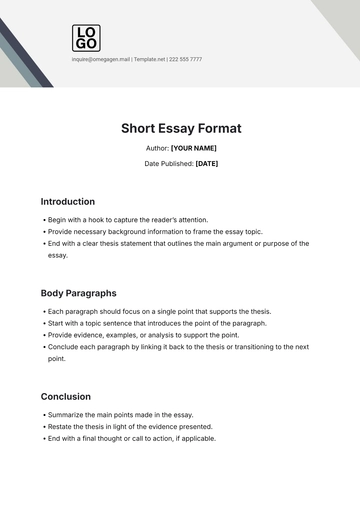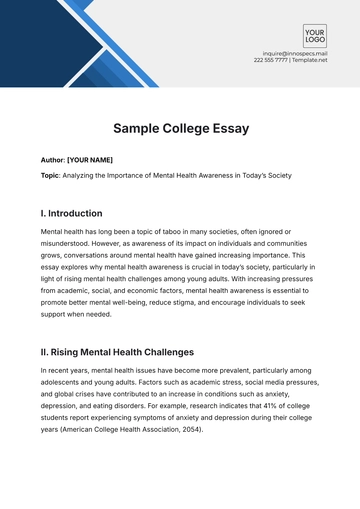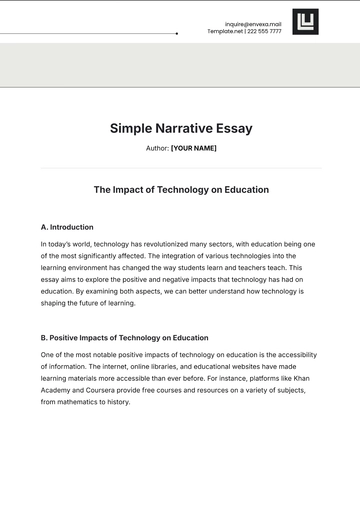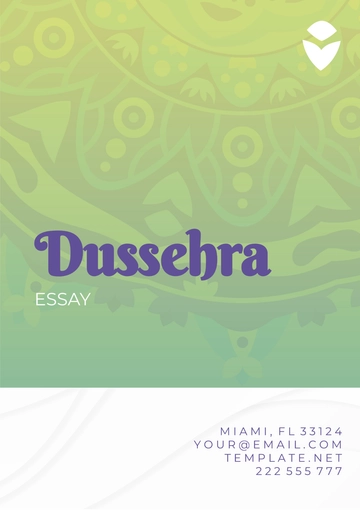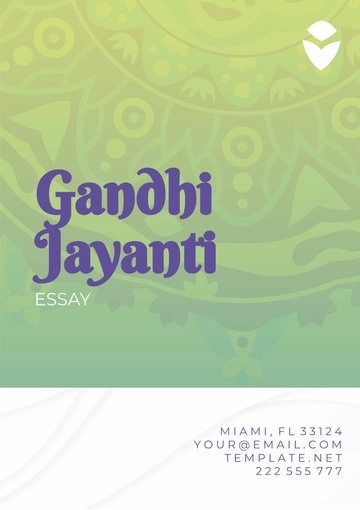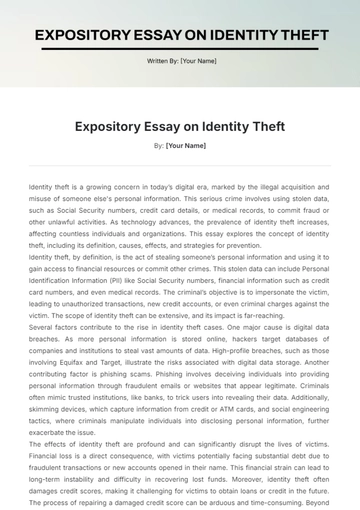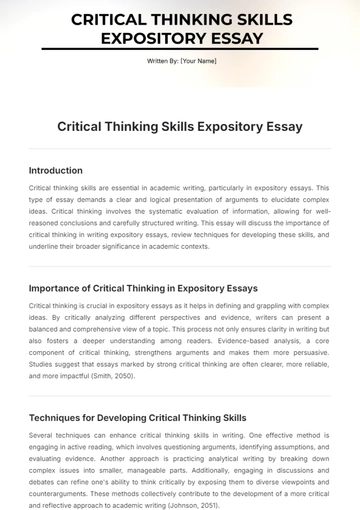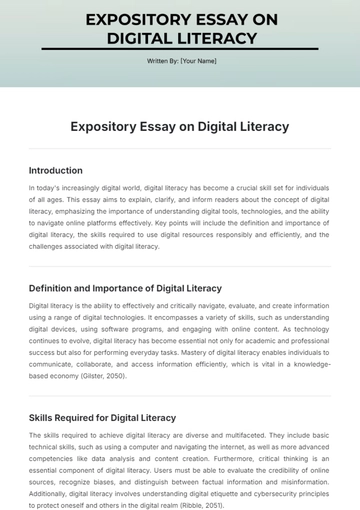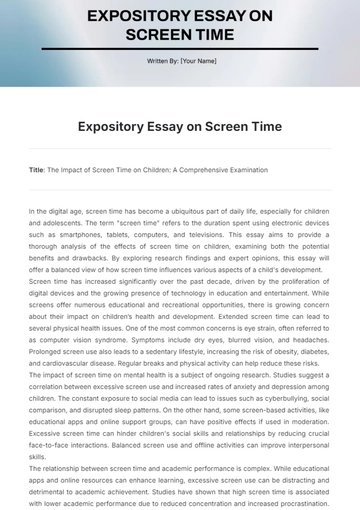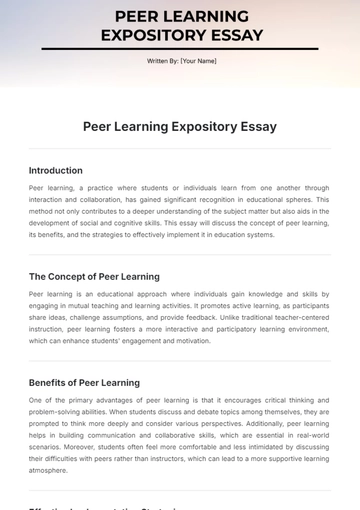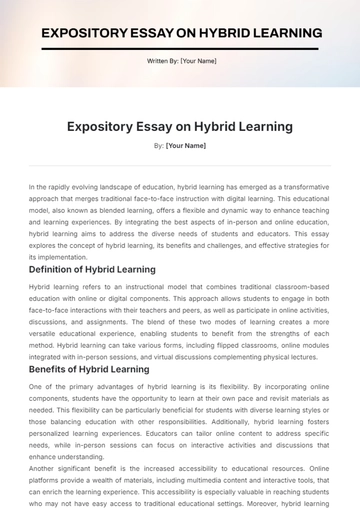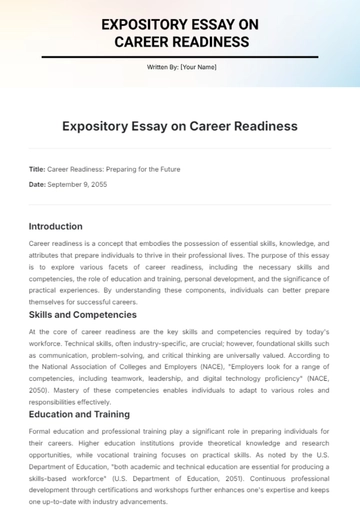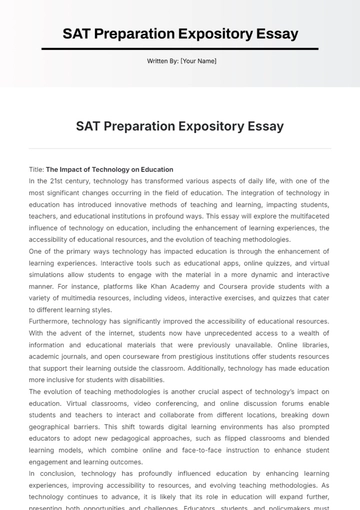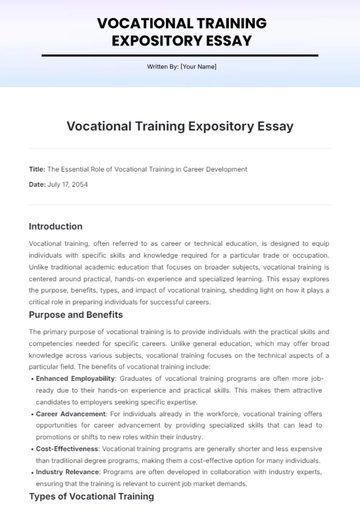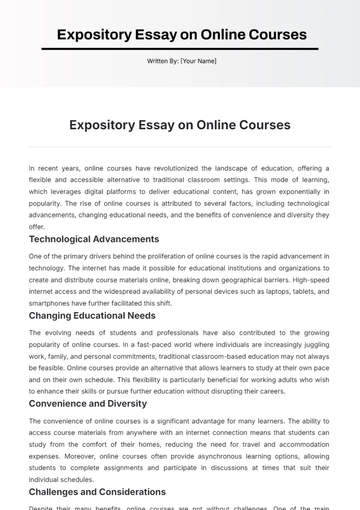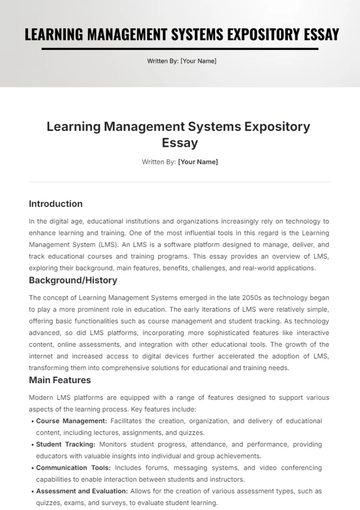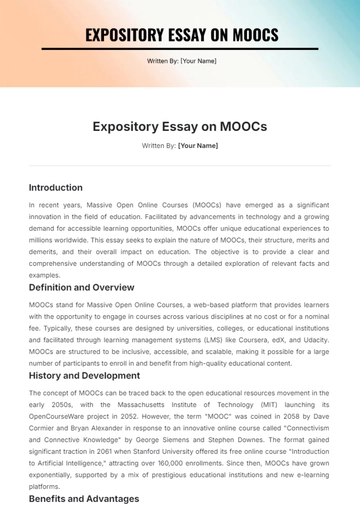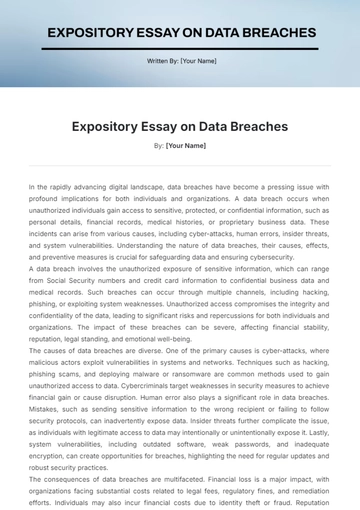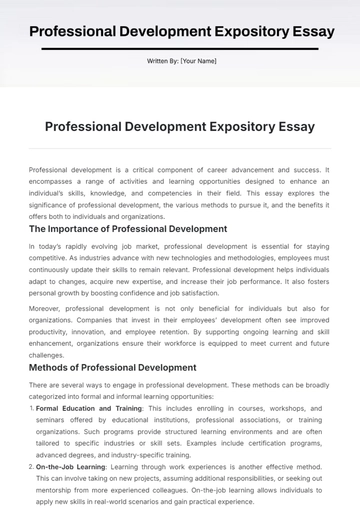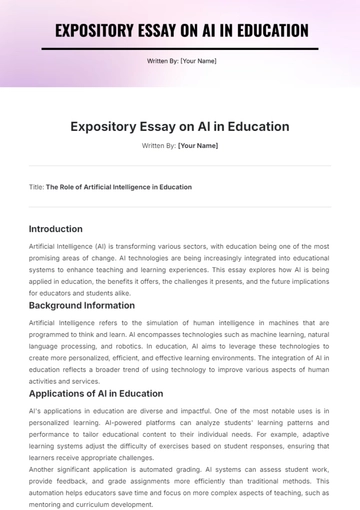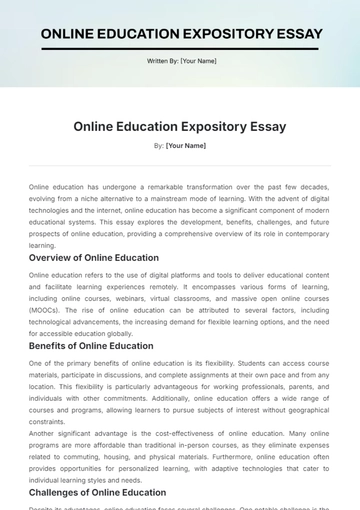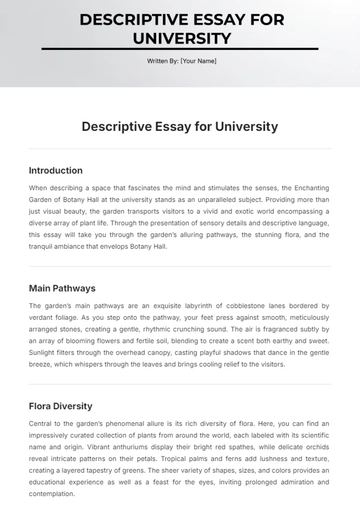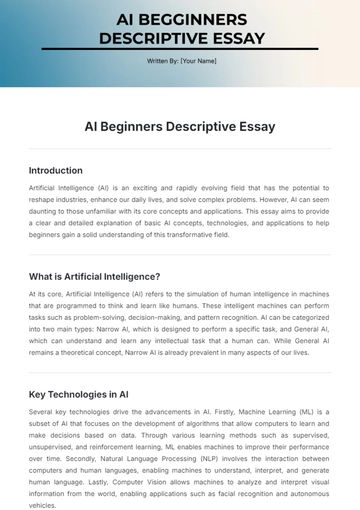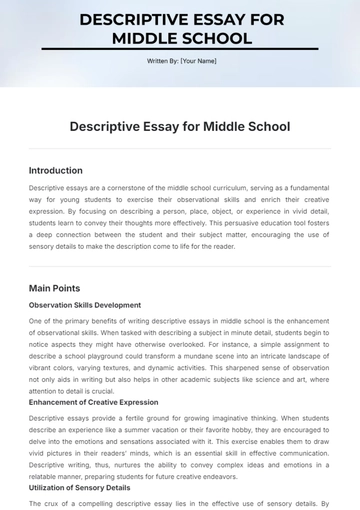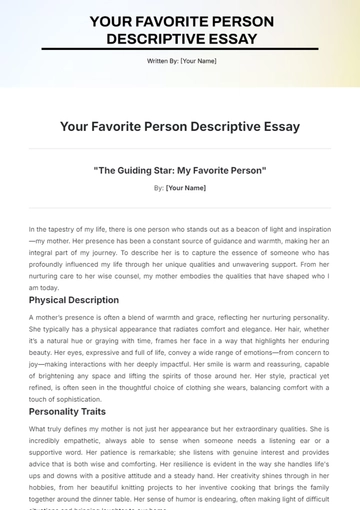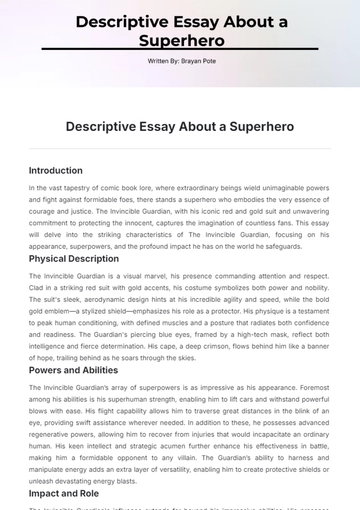Peer Learning Expository Essay
Introduction
Peer learning, a practice where students or individuals learn from one another through interaction and collaboration, has gained significant recognition in educational spheres. This method not only contributes to a deeper understanding of the subject matter but also aids in the development of social and cognitive skills. This essay will discuss the concept of peer learning, its benefits, and the strategies to effectively implement it in education systems.
The Concept of Peer Learning
Peer learning is an educational approach where individuals gain knowledge and skills by engaging in mutual teaching and learning activities. It promotes active learning, as participants share ideas, challenge assumptions, and provide feedback. Unlike traditional teacher-centered instruction, peer learning fosters a more interactive and participatory learning environment, which can enhance students' engagement and motivation.
Benefits of Peer Learning
One of the primary advantages of peer learning is that it encourages critical thinking and problem-solving abilities. When students discuss and debate topics among themselves, they are prompted to think more deeply and consider various perspectives. Additionally, peer learning helps in building communication and collaborative skills, which are essential in real-world scenarios. Moreover, students often feel more comfortable and less intimidated by discussing their difficulties with peers rather than instructors, which can lead to a more supportive learning atmosphere.
Effective Implementation Strategies
To make peer learning effective, it is essential to incorporate specific strategies. Firstly, clear goals and expectations should be set to guide the learning process. Structured activities, such as group projects and peer review sessions, can provide a framework for productive collaboration. Secondly, facilitation by instructors is crucial to ensure that peer interactions remain focused and constructive. Lastly, incorporating diverse group compositions can enhance learning experiences by bringing in varied perspectives and reducing the chances of groupthink.
Conclusion
In conclusion, peer learning represents a valuable educational approach that can significantly enhance the learning experience. Through collaborative efforts, individuals can develop a deeper understanding of the material, build crucial interpersonal skills, and become more engaged learners. Effective implementation of peer learning requires careful planning and facilitation, but the benefits it offers make these efforts worthwhile.
Bibliography
Johnson, D. W., Johnson, R. T., & Smith, K. A. (2050). Cooperative Learning: Improving University Instruction By Basing Practice On Validated Theory. Journal on Excellence in College Teaching, 25(4), 85-118.
Micari, M., & Pazos, P. (2051). Connecting to the Professor: Impact of the Student-Faculty Relationship in a Highly Challenging Course. College Teaching, 60(2), 41-47.
Topping, K. J. (2052). Trends in Peer Learning. Educational Psychology, 25(6), 631-645.
Essay Templates @ Template.net
